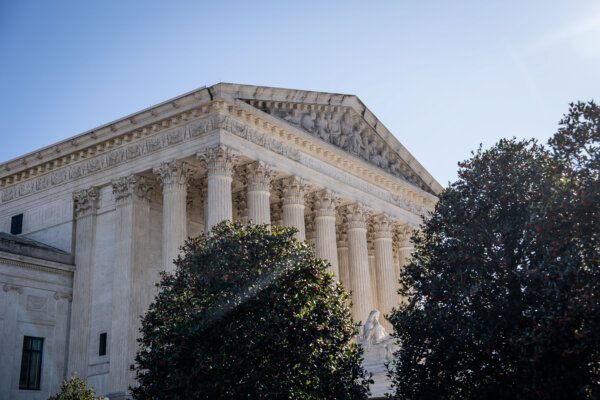Supreme Court Denies Trump’s Bid to Halt Sentencing in New York Case

Trump had urged the justices to examine matters pertaining to presidential immunity.
The Supreme Court denied President-elect Donald Trump’s request on Jan. 9 to suspend proceedings in his New York business records case, eliminating a possible obstacle to sentencing set for Jan. 10.
The concise order noted that Justices Samuel Alito, Clarence Thomas, Neil Gorsuch, and Brett Kavanaugh would have approved the application.
Trump submitted his request for a stay on Jan. 8, arguing that “the possibility of sentencing President Trump just before he takes office as the 47th President raises concerns about potential limitations on liberty, including travel restrictions, reporting obligations, registration, and probationary requirements—all of which would be constitutionally unacceptable under the doctrine of Presidential immunity.”
New York Supreme Court Justice Juan Merchan indicated he would avoid imposing a punishment that includes incarceration. He, along with two state appellate courts, rejected Trump’s request to pause proceedings.
Trump contended to the U.S. Supreme Court that Merchan incorrectly allowed specific evidence of his actions as president and failed to recognize a form of immunity applicable to presidents-elect. He urged the court to review his case and deliberate on these matters, as well as whether he was qualified for an automatic stay due to his appeal regarding presidential immunity.
In May, Trump was convicted on 34 felony counts relating to falsifying records in connection with alleged payments to adult film actress Stephanie Clifford. Merchan is anticipated to issue a judgment of conviction on Jan. 10 and might deliver a statement critiquing Trump’s conduct.
Manhattan District Attorney Alvin Bragg, who filed the indictment against Trump in 2023, advised the U.S. Supreme Court on Jan. 9 to dismiss Trump’s application and let the state courts manage the situation. Bragg stated that Trump was seeking an extraordinary intervention by the justices and had not yet pursued all available remedies in state court.
“Granting a stay here could delay sentencing until after January 20, when the defendant is inaugurated, and his status as the sitting President would present much more serious and potentially insurmountable challenges to sentencing and resolution,” Bragg’s brief highlighted.
The president-elect asserted that Merchan’s opinion “contradicts our Constitution, and if allowed to persist, would signify the end of the Presidency as we know it.”

